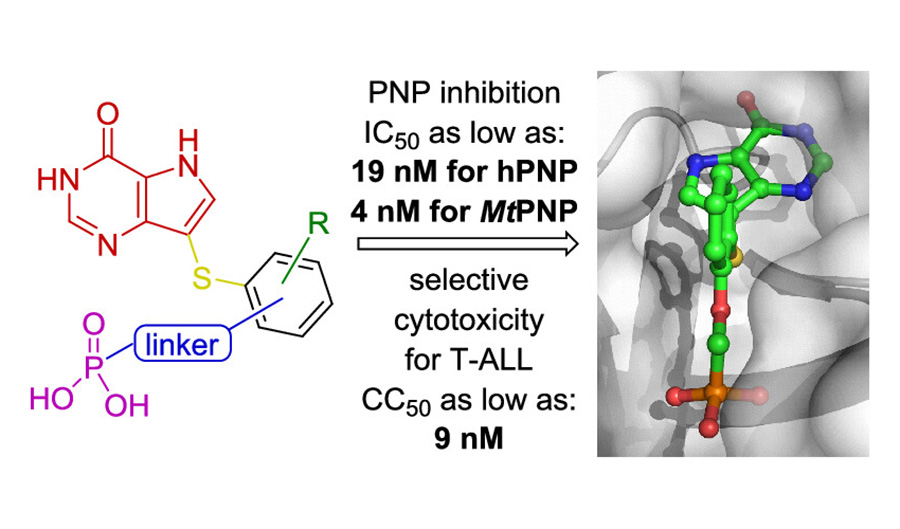
Adenylate cyclases (ACs) are enzymes catalyzing the formation of cyclic adenosine monophosphate (cAMP), which is a second messenger involved in many important intracellular processes in all cells. Several pathogenic bacteria, such as Bordetella pertussis causing whooping cough or Bacillus anthracis, produce ACs as virulence factors to facilitate the bacterial infection spread.
Zlatko Janeba's research group synthesized a series of novel acyclic nucleoside phosphonates (ANPs) acting as submicromolar bacterial ACs inhibitors. The structure of novel ANPs is inspired by HBV drug adefovir and contains 2-aminothiazole base with different substituents at position 5. Some of the prepared prodrugs also selectively inhibit certain mammalian ACs, which could be exploited for the treatment of human inflammatory and neuropathic pain.
The synthetic approach together with the inhibition studies has been published in the European Journal of Medicinal Chemistry with Petra Břehová and Ema Chaloupecká as the first authors.
Read the paper:
- Břehová, P.; Chaloupecká, E.; Česnek, M.; Skácel, J.; Dračínský, M.; Tloušťová, E.; Mertlíková-Kaiserová, H.; Soto-Velasquez, M. P.; Watts, V. J.; Janeba, Z. Acyclic nucleoside phosphonates with 2-aminothiazole base as inhibitors of bacterial and mammalian adenylate cyclases. European Journal of Medicinal Chemistry 2021, 222, 113581. https://doi.org/10.1016/j.ejmech.2021.113581






